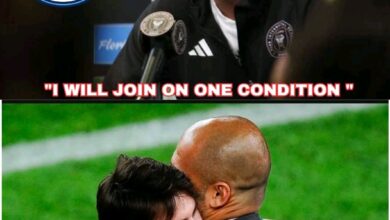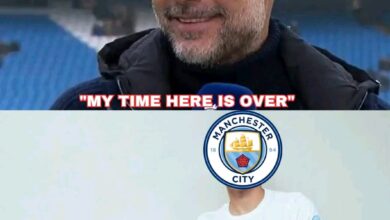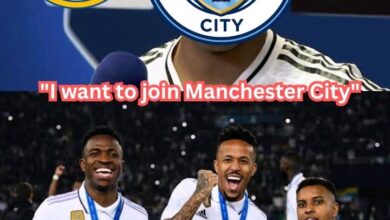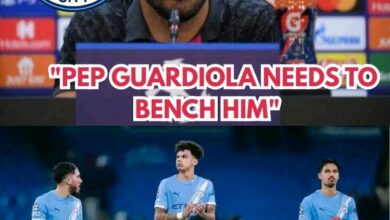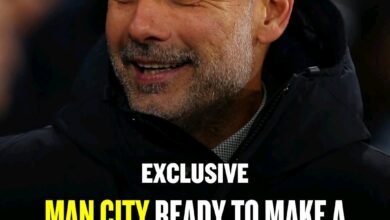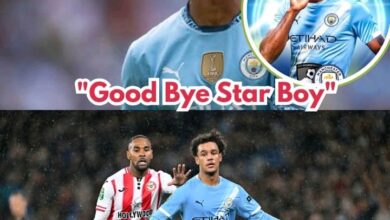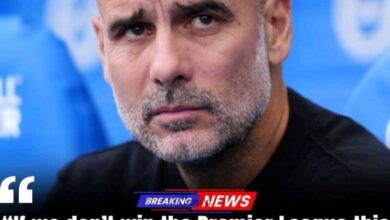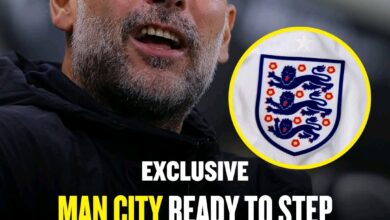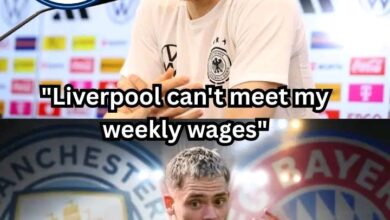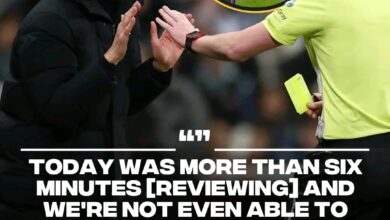Man City ‘ready to blow budget’ on one player this summer after Southampton disasterclass
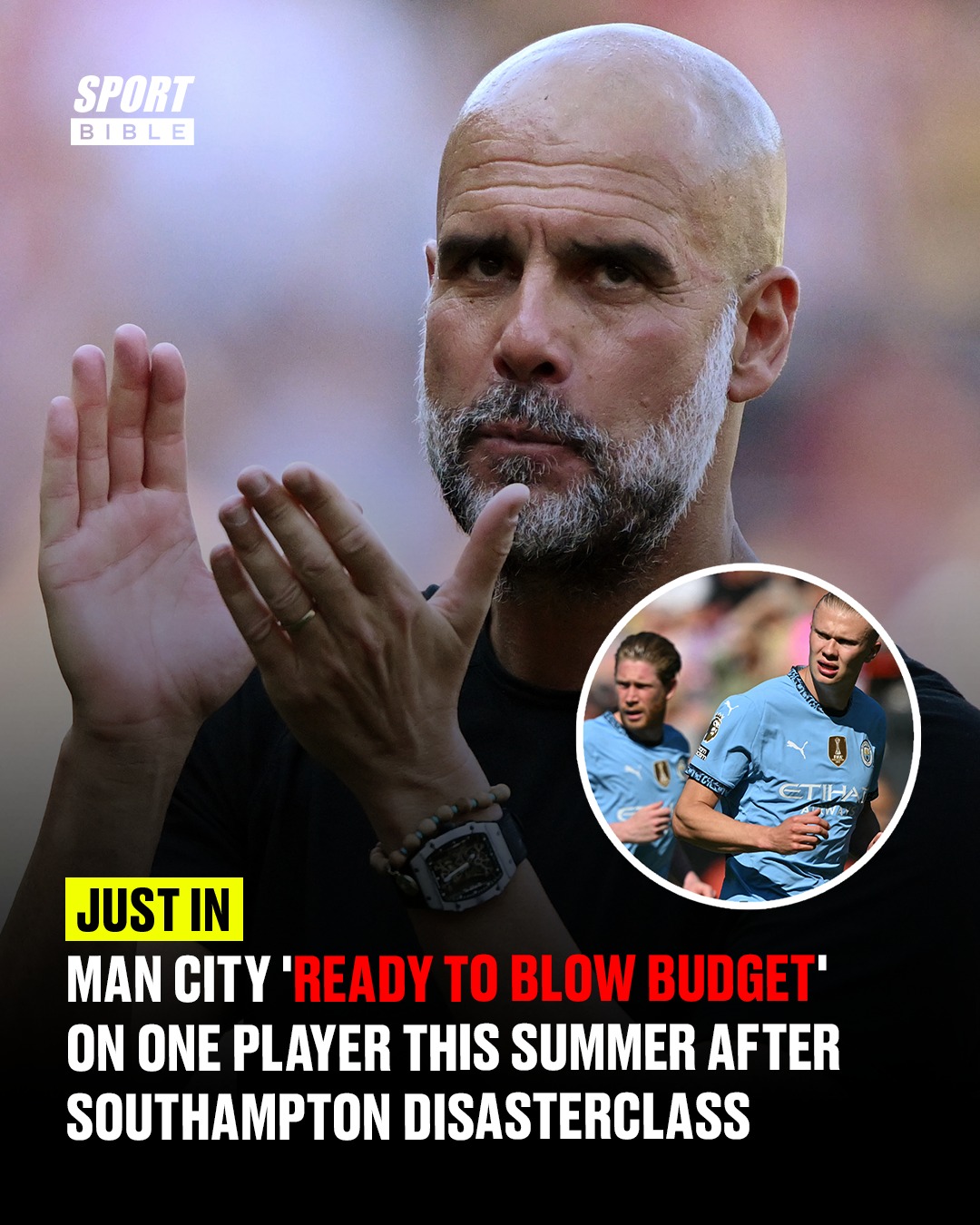
In the unforgiving world of elite football, where success is measured in silverware and expectations rise with each passing season, Manchester City find themselves at a critical crossroads. A campaign that began with customary optimism has deteriorated into what many are now characterizing as a “catastrophe by their modern standards.” The latest setback—a dispiriting 0-0 draw against already-relegated Southampton at St. Mary’s Stadium—has only intensified scrutiny on Pep Guardiola’s squad as they contemplate an unprecedented scenario: the possibility of missing Champions League football next season.
The Southampton stalemate wasn’t merely two dropped points; it represented a symbolic nadir for a team that has consistently set the benchmark for excellence in English football over the past half-decade. Against a Saints side confirmed as the Premier League’s bottom club, City looked bereft of ideas, energy, and the clinical edge that has defined their dominance. Only the width of the woodwork denied them a victory they scarcely deserved, according to observers at the match.
“Every time Manchester City look to have rediscovered their ability to win when it matters, Pep Guardiola gets a crushing reminder that his team isn’t to be trusted,” noted journalist Chris Nee in his post-match assessment, capturing the essence of City’s inconsistency throughout the 2024-25 campaign.
A Season of Unexpected Decline
The trajectory of City’s season has confounded even the most astute football analysts. After a solid start that aligned with expectations, their form has deteriorated across multiple competitions. In the Premier League, they find themselves “miles off the pace” in the title race—a remarkable deviation for a club that has made championship processions an almost annual tradition in recent years.
Perhaps most alarming for the City faithful was their Champions League elimination at the hands of Real Madrid. Unlike previous European exits characterized by dramatic late collapses or contentious refereeing decisions, this defeat had an air of inevitability about it. The Spanish giants dispatched Guardiola’s men “with relative ease,” according to match reports—a damning indictment for a club whose ownership has invested billions specifically with European domination in mind.
The accumulation of disappointments has cast a shadow over the Etihad Stadium that extends beyond this season’s remaining fixtures. Questions about the aging squad, tactical staleness, and recruitment strategy have emerged with increasing urgency, prompting speculation about a potentially transformative summer transfer window.
Targeting Morgan Gibbs-White: A Statement of Intent
Against this backdrop of underperformance, reports have emerged linking Manchester City with a high-profile move for Nottingham Forest star Morgan Gibbs-White. The 25-year-old England international has enjoyed what many consider the season of his career, establishing himself as the creative fulcrum of a Forest side that has defied expectations by challenging for European qualification.
Gibbs-White’s journey to this point represents one of English football’s more interesting developmental arcs. Signed by Forest from Wolverhampton Wanderers three years ago for what was considered a “hefty fee” at the time, his trajectory since has justified that investment many times over. Under progressive coaching at the City Ground, Gibbs-White has evolved from a promising talent into a complete midfielder, combining technical security with creative inspiration and end product.
His statistical contribution this season—five goals and seven assists—tells only part of the story. Tactically, Gibbs-White has been the connective tissue in a Forest system that transitions from defense to attack at remarkable speed. His spatial awareness, ability to operate effectively between the lines, and improved decision-making in the final third have made him one of the Premier League’s standout performers.
Former England and Tottenham goalkeeper Paul Robinson, speaking on Football Insider’s Inside Track podcast, suggested that Gibbs-White’s acquisition could consume Manchester City’s entire summer budget:
“I think it’s going to cost a lot of money, but there’s an opportunity there with Forest, with their FFP and PSR [situation],” Robinson observed. “Manchester City obviously spent heavily in January, so they’re going to have to tow the line as well. If a big bid does come in for him, that might be the only one that City get to do in the summer, in all honesty.”
Robinson added: “Because that’s going to cost them, that could be their whole budget in one go, but it would certainly be worth it after the recruits they got in January.”
The Financial Reality
Manchester City’s interest in Gibbs-White comes at a time when football’s financial regulations have never been more stringent or scrutinized. The club’s January spending has reduced their summer flexibility, while Nottingham Forest’s own position regarding Profitability and Sustainability Rules (PSR) creates a complex negotiating dynamic.
Forest, despite their resurgence on the pitch, must remain compliant with financial regulations that limit losses over a three-year accounting period. The sale of a prized asset like Gibbs-White would generate significant profit on their balance sheet, potentially alleviating any PSR concerns. However, this doesn’t mean they will allow their star midfielder to leave without commanding a premium price.
Industry insiders suggest that Forest would demand at least double the approximate £30 million they paid Wolves in 2022, placing Gibbs-White’s valuation in the region of £60-70 million. For Manchester City, allocating such a substantial portion of their transfer budget to a single player represents a significant strategic decision, especially given the multiple areas of the squad that potentially require reinforcement.
The Champions League Factor
Complicating City’s transfer plans further is their precarious position in the race for Champions League qualification. The draw at Southampton dealt another blow to their hopes of securing a top-four finish, a scenario that seemed unthinkable when the season began.
For a club of Manchester City’s stature and ambition, Champions League participation is not merely a sporting objective but a commercial necessity. The competition’s revenue streams, global exposure, and prestige make it an essential platform for attracting elite talent. Players of Gibbs-White’s caliber typically consider Champions League football a prerequisite when contemplating career moves.
Should City fail to secure qualification, their negotiating position would be significantly weakened, both in terms of financial capacity and player appeal. The club’s hierarchy will be acutely aware that missing out on Europe’s premier club competition could trigger a domino effect extending well beyond a single season.
Rebuilding from Disappointment
Manchester City’s potential pursuit of Morgan Gibbs-White signals a recognition that the current squad requires meaningful reinvigoration rather than mere supplementation. The midfielder’s age profile (25) aligns with a strategy of refreshing an aging core group while maintaining immediate competitiveness.
Several of City’s key performers—Kevin De Bruyne, İlkay Gündoğan, and Bernardo Silva among them—have either entered or are approaching the latter stages of their prime years. While their quality remains undisputed, the physical demands of Guardiola’s system and the relentless Premier League calendar have begun to extract a visible toll.
Gibbs-White would represent not just a talented addition but a stylistic fit for Guardiola’s philosophy. His press-resistance, positional intelligence, and versatility across midfield positions mirror attributes the Catalan coach has consistently prioritized in his recruitment at both Barcelona and City.
Moreover, as a homegrown player, Gibbs-White would address squad registration requirements for both Premier League and UEFA competitions—an increasingly important consideration as regulatory frameworks evolve.
The McTominay Parallel
The article’s secondary focus on former Manchester United midfielder Scott McTominay offers an interesting counterpoint to City’s potential pursuit of Gibbs-White. McTominay’s transformation since leaving Old Trafford for Napoli in a £25.7 million deal highlights both the unpredictable nature of player development and the importance of tactical context.
Written off by many during his United tenure as merely a physically imposing presence lacking technical refinement, McTominay has blossomed in Serie A. His contribution of 11 league goals has been instrumental in propelling Napoli to a three-point lead at the summit of Italian football with just four matches remaining.
The Scot’s renaissance under Antonio Conte’s guidance has garnered effusive praise from the Italian media, with Gazzetta dello Sport journalist Antonio Giordano labeling him a “genius” following a match-winning brace against Torino. This dramatic career elevation has prompted speculation about another high-profile move, with Neapolitan coach Carmine Gautieri even suggesting McTominay could now play for elite clubs like Real Madrid or Manchester City.
“We’re talking about a complete player,” Gautieri told Radio Capri. “He has pace, he fits in well, he knows how to shoot and he also scores with his head. I must admit that I didn’t expect it, so congratulations to whoever brought him to [Napoli]. A profile like that could easily play in teams of the calibre of Real Madrid or Manchester City. At the moment he is among the strongest midfielders in Europe.”
While the prospect of McTominay joining City after spending 22 years at Manchester United is described as “vanishingly small,” his transformation offers a cautionary tale about player evaluation. It raises questions about whether Premier League clubs—City included—sometimes fail to fully develop or recognize the potential within their squads before seeking external solutions.
The Guardiola Factor
Central to any discussion of Manchester City’s future direction is the influence and longevity of Pep Guardiola. The Catalan coach has redefined English football during his tenure at the Etihad, establishing a stylistic and tactical blueprint that has delivered unprecedented domestic success.
However, this season’s struggles have prompted whispers about whether Guardiola’s message and methods might be losing their impact—a phenomenon observed during the concluding phases of his tenures at both Barcelona and Bayern Munich. The manager’s contract situation will inevitably shape transfer strategy, as potential signings will seek assurances about the club’s technical leadership before committing their futures.
If Guardiola confirms his intention to remain beyond his current agreement, players like Gibbs-White may view City as an attractive destination despite their current difficulties. The coach’s reputation for player development and tactical innovation retains considerable appeal within the professional game.
Conversely, uncertainty surrounding Guardiola’s future would complicate recruitment efforts, particularly for promising talents with multiple suitors. The club’s hierarchy will be mindful that their transfer strategy must balance immediate competitive needs with longer-term succession planning.
Expanding the Search Beyond Gibbs-White
While Morgan Gibbs-White appears to be a primary target, Manchester City’s recruitment team will be exploring multiple options across various positions. The defensive unit, in particular, has shown vulnerability this season that would have been uncharacteristic during the club’s championship campaigns.
The midfield department, despite Rodri’s continued excellence as a defensive pivot, has lacked the dynamism and creative thrust that previously facilitated their possession-dominant approach. Gibbs-White would address this specific deficiency, but City may require additional reinforcements to restore their former levels of control and penetration.
In the attacking third, questions persist about the center-forward position despite Erling Haaland’s individual goal return. The Norwegian’s integration into City’s collective structure remains a work in progress, with matches like the Southampton stalemate highlighting disconnections between the striker and his supporting cast.
Navigating Financial Constraints
Manchester City’s transfer ambitions exist within the context of increasingly stringent financial regulations. Having spent heavily in January, their summer budget will be constrained by both Premier League PSR requirements and UEFA’s evolving financial framework.
This financial reality explains Robinson’s assessment that Gibbs-White could consume City’s “whole budget in one go.” The club must carefully evaluate whether concentrating their resources on a single premium acquisition represents the most efficient allocation strategy given their multiple squad needs.
Alternative approaches might include targeting promising talents from leagues with lower price thresholds or pursuing players entering the final years of their contracts. Such strategies would allow for broader squad reinforcement rather than a singular statement signing.
The Road Ahead
As Manchester City navigate the closing stages of a disappointing campaign, their summer planning will be informed by both comprehensive performance analysis and realistic financial parameters. The potential pursuit of Morgan Gibbs-White signals ambition and recognition that meaningful change is required rather than incremental adjustments.
Whether Champions League qualification is secured or not, this summer represents a pivotal moment in City’s evolutionary arc under their current ownership. After years of methodical squad building and strategic recruitment, they face the challenge of regeneration without sacrificing competitiveness.
The Southampton draw may fade from memory as a single disappointing result in a challenging season, but its timing and manner have crystallized broader concerns about City’s trajectory. In Morgan Gibbs-White, they appear to have identified a talent capable of injecting fresh energy and creativity into a midfield department that has shown signs of staleness.
As former England goalkeeper Paul Robinson observed, securing Gibbs-White’s signature would require significant financial commitment but might prove transformative for a club seeking to rediscover its identity and momentum. Whether City proceed with this approach or explore alternative recruitment strategies, the coming transfer window promises to be one of the most consequential in their recent history.
Meanwhile, in Naples, Scott McTominay’s renaissance continues to gather momentum. As Napoli edge closer to Scudetto glory, the midfielder’s journey from Manchester United squad player to Serie A star serves as a reminder of football’s capacity for unexpected narratives and career rejuvenation. Though his suggested suitability for Manchester City carries obvious tribal complications, his evolution offers valuable lessons about player development and contextual fit that all clubs, regardless of their resources, would be wise to heed.
For Manchester City, the immediate priority remains salvaging Champions League qualification from a season of underperformance. Beyond that, however, lies a summer of critical decisions that will shape their competitive trajectory for years to come. The pursuit of Morgan Gibbs-White may represent just the beginning of a comprehensive rebuilding project designed to restore their status as English football’s dominant force.






